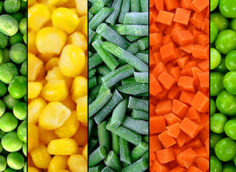Maybe you think you're protected from the sun because you slop on some sunscreen before you hit the beach. Nice try, but about 75% of beach goers who use sunscreen get burned anyhow. Either they put it on sloppily, don't use enough, or fail to heed the instructions to apply it 30 minutes beforehand. Most of the time, people at the beach are just seared ahi, waiting to be doused in wasabi and soy.
And then there are the others who think they're safe because the only sun they get is from behind the windows of their car or office. It's a nice thought, but while glass may block UVB rays, it lets through the more damaging UVA rays. Oh, and don't forget about the UV light that bounces off nearly every surface, especially sidewalks.
If it's not visibly burning your skin, it's at the very least photo-aging it, and the faces of most people prematurely end up looking like the worn leather seat cushion of grandpa's favorite recliner, the one he plopped his bony ass on for 30 years.
The real answer to sun protection may lie in treating the insides, and green tea might just be the elixir you need.
The Green Tea Cure?
Scientists have long known that the polyphenols in green tea, when applied topically, prevent some of the adverse effects of ultraviolet radiation, but what they didn't know was if drinking green tea would have the same effects.
So, in 2004, scientists ran an experiment. They took hairless mice, gave them GTP (green tea polyphenols) in their drinking water, and exposed them to multiple doses of UVB light. The treatment resulted in inhibition of UVB-induced protein oxidation, in addition to inhibition of several types of MMP (an enzyme responsible for normal tissue turnover). They concluded that green tea, taken orally, could lessen the damage caused by sunlight and UVB rays.
Some of these same scientists later discovered that the main catechin in green tea, EGCG, prevents the proliferation of leukocytes, white blood cells that sometimes indicate the onset of skin cancer. Furthermore, EGCG also induces cancerous skin cells to perform apoptosis, which is a technical word for cell suicide. That means that green tea appears to not only prevent sun damage, but may actually reverse it.
It's also possible green tea may even afford some protection against melanoma, the deadliest form of skin cancer.
How to Use This Info
Most experts think you need between 250 to 400 mg. of green tea extract (containing the four main green tea polyphenols) to possibly protect yourself against sun damage. You can get that from a cup of green tea, which contains an average of 253 mg. of catechins.
However, some scientists say that it's one particular green tea catechin, EGCG, that's performing all the magic, and the average cup of green tea only contains about 50 milligrams. (And some store brands, like the Diet Snapple version of green tea, according to the New York Times, contains zero EGCG!)
Clearly, science is unsure of the perfect dosage, and it's even more problematical given that cups of green tea (and different varieties and even different crops of the same type) vary enormously in their catechin content.
My advice would be to take a standardized green tea supplement (250 to 400 mg. per day). You can also get a good dose of EGCG by taking Biotest Superfood.
Another option is to hack your cup of green tea by boiling loose leaves for four minutes. This should multiply catechin content by up to 3, 4, or 5 times. If you're stuck with bags of green tea leaves, steep the hell out of them. Let them sit for 5 or 6 minutes, and if you like milk with your tea, don't add it until the tea has stopped steeping.
Alternately, you could just drink multiple cups (2-4) of normally brewed, potentially weak-ass green tea. Even that may be too daunting, but look at it this way: If you can't have 3 or 4 cups, 2 or 1 is better than nothing and, depending on the strength of the blend, may even give you what you need.
Sources
- Vayalil PK, Mittal A, Hara Y, Elmets CA, Katiyar SK., "Green tea polyphenols prevent ultraviolet light-induced oxidative damage and matrix metalloproteinases expression in mouse skin." J Invest Dermatol. 2004 Jun;122(6):1480-7.
- Ahmad N, Feyes DK, Nieminen AL, Agarwal R, Mukhtar H. "Green tea constituent epigallocatechin-3-gallate and induction to apoptosis and cell cycle arrest in human carcinoma cells." J Natl Cancer Inst 1997 Dec 17;89(24):1881-6.





